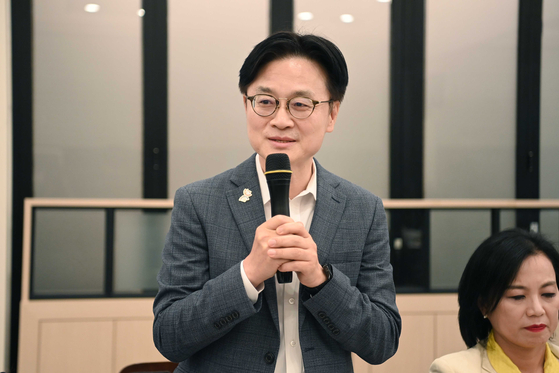AI boom requires lots of energy. Korea isn't moving fast enough.
Update: 2025-11-15
Description
This article is by Ahn Hyo-seong and read by an artificial voice.
As AI research accelerates, Korean universities are facing a growing power shortage - so severe that some have had to restrict energy use by shutting down servers in other labs.
"AI research consumes massive amounts of electricity, and power-related issues are becoming more frequent," said a professor at a university in the Seoul metropolitan area.
"Even if Nvidia delivers high-performance GPUs as promised, we may not be able to use them due to electricity constraints."
Korea has found itself at the center of a global AI power race. While the announced supply of 260,000 GPUs from Nvidia has eased concerns about AI computing power, a more pressing issue remains: electricity.
Operating a data center equipped with 260,000 GPUs, based on the GB200 model, would require around 600 megawatts of power, including for cooling systems - nearly half the output of an APR-1400 nuclear reactor, Korea's newest large-scale reactor model.
Experts warn that Korea may be ill-prepared for this surge in demand. While other countries are moving to secure additional nuclear capacity, Korea has made very little effort in that direction following the phaseout policy of the Moon Jae-in administration. The infrastructure needed to transmit electricity, such as power grids, is also not keeping pace.
The United States is restarting shuttered nuclear plants and expanding natural gas power generation to secure electricity for its AI ambitions. Britain has resumed nuclear construction and even Germany - which once pursued a nuclear phaseout - is now reconsidering the option.
"Despite long-held environmental concerns about nuclear power generation, political leaders across the globe are increasingly looking to lift restrictions on nuclear reactors or invest billions in new projects to keep pace with the fast-rising demand for low-carbon energy, which is expected to accelerate as AI data centers grow," according to a Guardian report on June 1.
"The United States is relying on natural gas to meet the electricity needs of data centers, while China is turning to coal," Yoo Seung-hoon, a professor at Seoul National University of Science and Technology, said.
"The United States is blending energy sources - using solar and energy storage systems as supplemental sources while relying mainly on natural gas," said Ham Wan-kyun, the CEO of energy consultancy Solution Strategy Partners. He added that Washington provides tax incentives for a wide range of technologies, from small modular reactors to carbon capture, instead of favoring one energy source.
Korea, by contrast, is heavily tilted toward renewables.
"We urgently need vast amounts of electricity for data centers, and the only energy system capable of supplying it quickly is renewable energy," President Lee Jae Myung said in a press briefing marking his 100th day in office in September.
He also said there is no available site for a new nuclear plant, and even if construction began now, it would take 15 years before the plant becomes operational.
Under Korea's 2035 Nationally Determined Contribution under the Paris Agreement, greenhouse gas emissions from the power sector must fall by 68.8 to 75.3 percent from 2018 levels by 2035. That means phasing out fossil fuels, especially coal, and ramping up investment in solar and wind power. The government plans to expand renewable energy capacity from 34 gigawatts to 100 gigawatts by 2030, up from a previous target of 78 gigawatts.
While Seoul did take a step toward nuclear power with the inclusion of two new large-scale nuclear reactors in the 11th Basic Plan for Electricity Supply and Demand, their fates remain uncertain. Minister of Climate, Energy and Environment Kim Sung-whan has said any decision on new nuclear plants should reflect public consensus.
Two large-scale reactors are scheduled to begin operation between 2037 and 2038, but in order to meet that timeline, sites must be selected within t...
As AI research accelerates, Korean universities are facing a growing power shortage - so severe that some have had to restrict energy use by shutting down servers in other labs.
"AI research consumes massive amounts of electricity, and power-related issues are becoming more frequent," said a professor at a university in the Seoul metropolitan area.
"Even if Nvidia delivers high-performance GPUs as promised, we may not be able to use them due to electricity constraints."
Korea has found itself at the center of a global AI power race. While the announced supply of 260,000 GPUs from Nvidia has eased concerns about AI computing power, a more pressing issue remains: electricity.
Operating a data center equipped with 260,000 GPUs, based on the GB200 model, would require around 600 megawatts of power, including for cooling systems - nearly half the output of an APR-1400 nuclear reactor, Korea's newest large-scale reactor model.
Experts warn that Korea may be ill-prepared for this surge in demand. While other countries are moving to secure additional nuclear capacity, Korea has made very little effort in that direction following the phaseout policy of the Moon Jae-in administration. The infrastructure needed to transmit electricity, such as power grids, is also not keeping pace.
The United States is restarting shuttered nuclear plants and expanding natural gas power generation to secure electricity for its AI ambitions. Britain has resumed nuclear construction and even Germany - which once pursued a nuclear phaseout - is now reconsidering the option.
"Despite long-held environmental concerns about nuclear power generation, political leaders across the globe are increasingly looking to lift restrictions on nuclear reactors or invest billions in new projects to keep pace with the fast-rising demand for low-carbon energy, which is expected to accelerate as AI data centers grow," according to a Guardian report on June 1.
"The United States is relying on natural gas to meet the electricity needs of data centers, while China is turning to coal," Yoo Seung-hoon, a professor at Seoul National University of Science and Technology, said.
"The United States is blending energy sources - using solar and energy storage systems as supplemental sources while relying mainly on natural gas," said Ham Wan-kyun, the CEO of energy consultancy Solution Strategy Partners. He added that Washington provides tax incentives for a wide range of technologies, from small modular reactors to carbon capture, instead of favoring one energy source.
Korea, by contrast, is heavily tilted toward renewables.
"We urgently need vast amounts of electricity for data centers, and the only energy system capable of supplying it quickly is renewable energy," President Lee Jae Myung said in a press briefing marking his 100th day in office in September.
He also said there is no available site for a new nuclear plant, and even if construction began now, it would take 15 years before the plant becomes operational.
Under Korea's 2035 Nationally Determined Contribution under the Paris Agreement, greenhouse gas emissions from the power sector must fall by 68.8 to 75.3 percent from 2018 levels by 2035. That means phasing out fossil fuels, especially coal, and ramping up investment in solar and wind power. The government plans to expand renewable energy capacity from 34 gigawatts to 100 gigawatts by 2030, up from a previous target of 78 gigawatts.
While Seoul did take a step toward nuclear power with the inclusion of two new large-scale nuclear reactors in the 11th Basic Plan for Electricity Supply and Demand, their fates remain uncertain. Minister of Climate, Energy and Environment Kim Sung-whan has said any decision on new nuclear plants should reflect public consensus.
Two large-scale reactors are scheduled to begin operation between 2037 and 2038, but in order to meet that timeline, sites must be selected within t...
Comments
In Channel

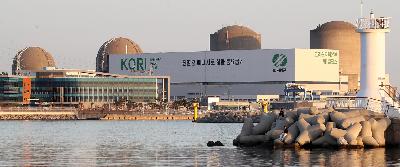
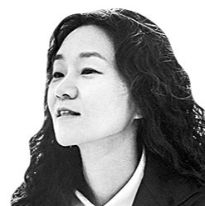
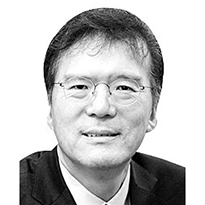

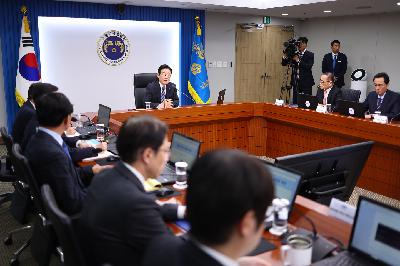


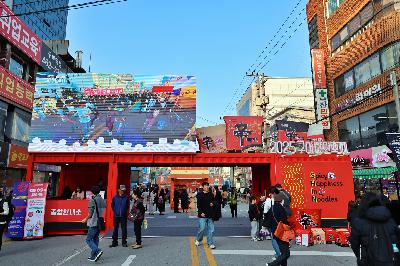
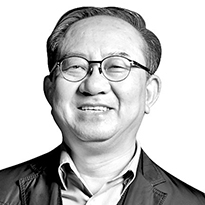
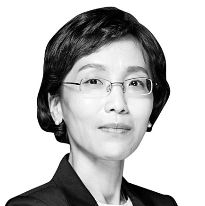
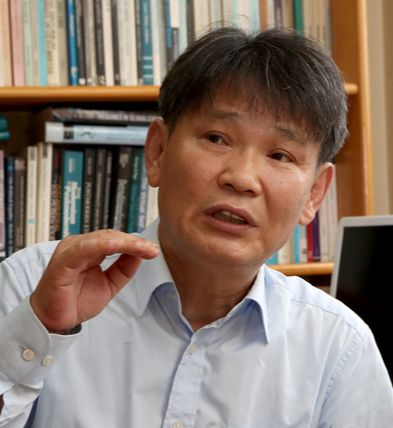

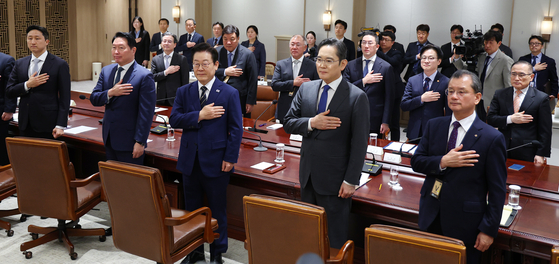
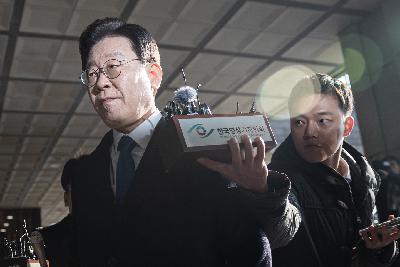
![[WHY] Good luck? Good energy? Or just a good time? All about Korea's lottery hot spots. [WHY] Good luck? Good energy? Or just a good time? All about Korea's lottery hot spots.](https://s3.castbox.fm/2b/d3/77/20af79ea99110b2a84c8f9e7eb415074ae_scaled_v1_400.jpg)
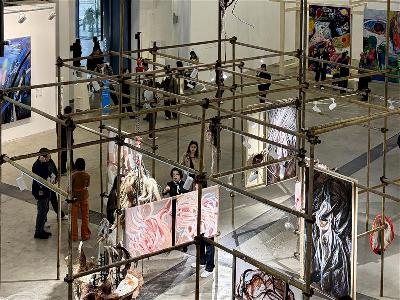
![[WHY] Good luck? Good energy? Or just a good time? All about Korea's lottery hot spots. [WHY] Good luck? Good energy? Or just a good time? All about Korea's lottery hot spots.](https://s3.castbox.fm/08/e0/9b/7c604594b1f527acf0345208b7aac32050_scaled_v1_400.jpg)

